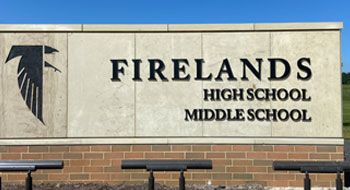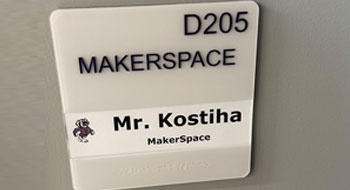Ins and Outs of ADA-Compliant Signage
Navigating the various requirements of ADA signage can be intimidating. If you keep a few simple “rules of thumb” in mind while designing your signs – or work with a sign company that knows the rules inside and out – it’s easy to create great-looking signs that are fully compliant to the Americans with Disabilities Act.
At Innersource, we specialize in ADA-complaint signage.
The ADA helps remove barriers for people with disabilities. An ADA-compliant sign is required for every permanent room or space in a building, and as of 2011, compliance is required and enforceable by federal law.
By following the rules set by the ADA, you will prevent negative repercussions of noncompliance such as lawsuits or hefty fines, and you will also ensure that visitors have proper access to your building.
Where and when are ADA-compliant signs required?
ADA-compliant signs (signs with Braille and tactile elements, among other features) are required when the purpose is to designate a permanent space in a building.
Buildings must have compliant signs that provide labels, names, or designations for interior spaces or rooms where the sign is not likely to change over the course of time. ADA-compliant signs are needed when an area of the building pertains to safety. This signage should be installed next to elevators, stairways, fire exits, restrooms, eye wash stations, etc.
Examples where ADA signage is required include:
- Room / floor numbers or letters
- Restrooms
- Conference rooms
- Exam rooms
- Storage rooms
- Changing rooms
- Break rooms
- Electrical rooms
- IT rooms
- Kitchens
It’s worth noting that tactile text descriptors are also required if the sign contains pictograms that identify or label a permanent space or room.
When do you NOT need ADA-compliant signage?
Any sign put up for marketing or advertising reasons, company name or logo signs, or temporary signs.
Signs in parking lots (except for accessible parking spaces), in areas not meant for public use or outside of the building where a business’ name/address is provided do not need to be ADA-compliant. This means that any area of the building with signage that provides nonessential information isn’t held to ADA standards.

 Building Exterior Signs
Building Exterior Signs Building Interior Signs
Building Interior Signs ADA Compliant Signs
ADA Compliant Signs